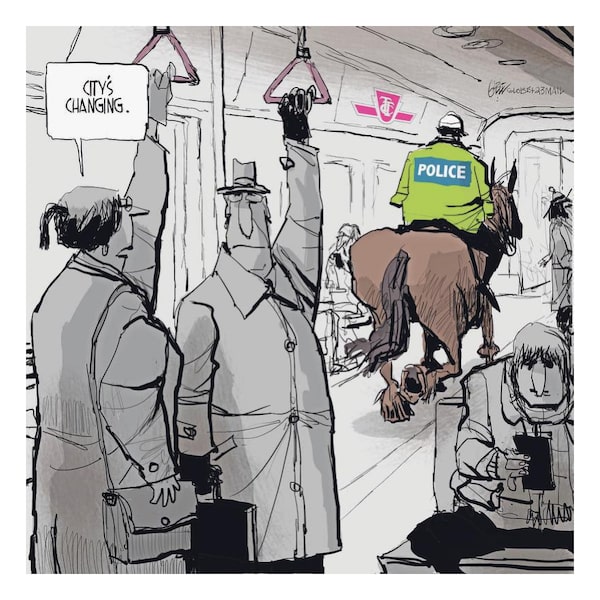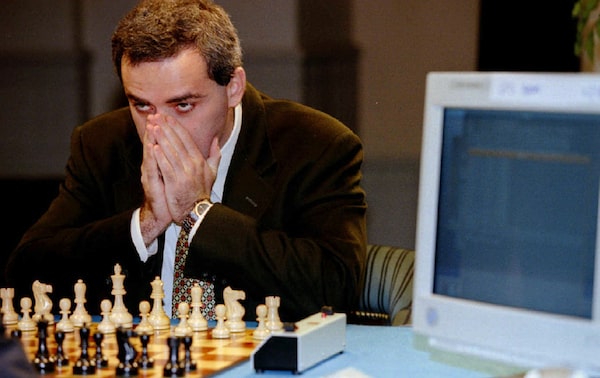The Morning Update newsletter will pause Monday, February 20.
Good morning,
China employed a sophisticated strategy to disrupt Canada’s democracy in the 2021 federal election campaign as Chinese diplomats and their proxies backed the re-election of Justin Trudeau’s Liberals – but only to another minority government – and worked to defeat Conservative politicians considered to be unfriendly to Beijing.
The full extent of the Chinese interference operation is laid bare in both secret and top-secret Canadian Security Intelligence Service documents viewed by The Globe and Mail that cover the period before and after the September, 2021, election that returned the Liberals to office.
Over the past decade, China, under President Xi Jinping, has adopted a more aggressive foreign policy as it seeks to expand its political, economic and military influence around the world.
A Chinese flag is illuminated by sunshine in the Hall of Honour on Parliament Hill in Ottawa, on September 22, 2016.Adrian Wyld/The Canadian Press
This is the daily Morning Update newsletter. If you’re reading this on the web, or it was forwarded to you from someone else, you can sign up for Morning Update and more than 20 other Globe newsletters on our newsletter signup page.
Ottawa tables bill to create independent body to review wrongful convictions
Justice Minister David Lametti has introduced legislation to establish a new independent body for reviewing wrongful convictions, which he says would make it faster and easier to get cases examined, and encourage Black and Indigenous applicants to come forward, even if they have pleaded guilty.
Under the current system, the federal justice minister is responsible for looking into potential miscarriages of justice. That can take years, and has produced just a trickle of findings in favour of prisoners, roughly one a year.
The legislation, which still must be debated and approved by Parliament, would establish a Miscarriage of Justice Review Commission. The new body would be given powers currently held by the Justice Minister, including the ability to require witnesses to testify under oath, and to compel the production of evidence. If it were to find that a miscarriage of justice might have occurred, it would have the authority to order a new trial, or send the case to an appellate court for a hearing.
Got a news tip that you’d like us to look into? E-mail us at tips@globeandmail.com Need to share documents securely? Reach out via SecureDrop
Also on our radar
Macklem says potential recession won’t be as severe as others: The Canadian economy may be on track for a recession this year, but it won’t feel as severe as other downturns the country has experienced over the past few decades, according to Bank of Canada Governor Tiff Macklem.
Emergencies Act inquiry report to be released: The report of the inquiry studying the federal government’s unprecedented decision to invoke the Emergencies Act to quell the convoy protests last winter will be released in Ottawa today.
Sajjan unclear on sharing of Canadian travel documents: International Development Minister Harjit Sajjan won’t say whether he knew his top adviser sent Canadian travel documents to a senator’s office, which then distributed copies to hundreds of Afghans, saying they had been granted a visa to come to Canada.
Cheating at Canadian universities on the rise: Comparisons across universities can be difficult in Canada because cases are categorized differently, but the general trend is clear: allegations of academic misconduct – meaning unauthorized help, cheating, plagiarism and other acts of dishonesty or misrepresentation – have risen sharply at many schools.
All-Canadian electric vehicle makes debut: More than 50 Canadian suppliers collaborated on an electric and autonomous vehicle called Project Arrow. Among the cutting-edge features of the Arrow are a solar-panel roof and a 3D-printed chassis, as well as a driver’s seat and steering wheel that can tell if the driver is experiencing a medical emergency, then instruct the car to head to the nearest hospital.
Morning markets
World shares slip: Shares slipped in Europe and Asia on Friday after benchmarks on Wall Street had their biggest drop in four weeks as investors registered disappointment over an inflation reading that came in hotter than expected. Around 5:30 a.m. ET, Britain’s FTSE 100 was down 0.24 per cent. Germany’s DAX and France’s CAC 40 lost 0.81 per cent and 0.67 per cent, respectively. In Asia, Japan’s Nikkei closed down 0.66 per cent. Hong Kong’s Hang Seng lost 1.28 per cent. New York futures were lower. The Canadian dollar was down at 74.04 US cents.
What everyone’s talking about
Editorial: “But given that knowing (and obeying) the rules about who you can give taxpayers’ money to is as much a part of the job of being in government as knowing (and obeying) the rules of the road is for a taxi driver, the fact that ministers and parliamentary secretaries need remedial conflict of interest lessons is just one more slap in the face of taxpaying Canadians.”
Today’s editorial cartoon

Illustration by Brian Gable
Living better
Five things to stream this weekend: Prime Video’s crafty A Spy Among Friends, plus peak Tom Cruise
Do you feel like you’re drowning … but you haven’t even left your couch? Welcome to the Great Content Overload Era. To help you navigate the choppy digital waves, here are The Globe’s best bets for weekend streaming.
Moment in time: Feb. 16, 1996

World chess champion Garry Kasparov glances up at Feng-Hsiung Hsu from IBM while contemplating his next move during his match against IBM's Deep Blue, the ACM International Computer Chess Champion Feb. 17, 1996.Barbara L. Johnston/Reuters
The last of the six-game series between Kasparov and Deep Blue
Deep Blue could calculate more than 200 million possible chess moves per second, but on this day in Philadelphia, the supercomputer was choosing the most timid ones. This was the end of a series against grandmaster Garry Kasparov, billed by Deep Blue’s IBM designers as a test of human versus artificial intelligence. Mr. Kasparov was still perturbed by Game 1, the first time a chess computer defeated a world champion. But after two victories and two draws, he had figured out ways to constrict Deep Blue so its brute-force tactics would be less effective in Game 6. Once its repertoire of opening moves ran out, “it began to play weakly, and it fell into a passive position,” Kasparov recalled in a 2017 book. “I could smell blood, or whatever it had.” His white pawns advanced, pinning down black’s bishop and castle. When Deep Blue’s minders resigned the game, Kasparov walked away with $400,000 and bragging rights for Team Humanity – until the rematch in 1997, when IBM bested him with the upgraded Deeper Blue. But he was a good sport about it: Today, Kasparov is a committed advocate for AI technologies and policies to use them responsibly. Evan Annett
Read today's horoscopes. Enjoy today's puzzles.
If you’d like to receive this newsletter by e-mail every weekday morning, go here to sign up. If you have any feedback, send us a note.